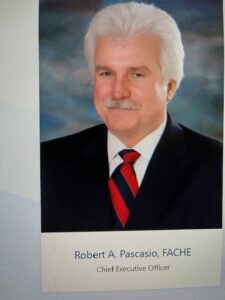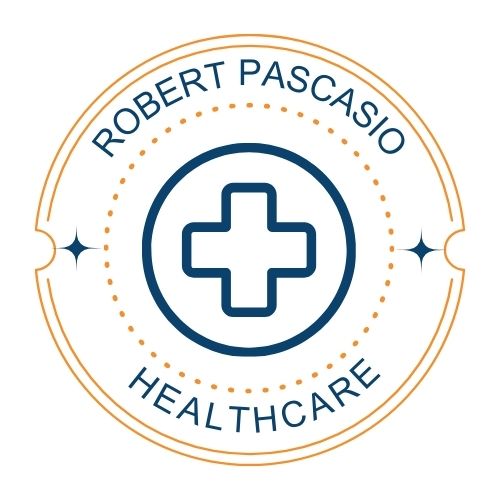 “I spent a great deal of my youth working alongside my grandparents on the dairy farm in central Texas,” shares Robert Pascasio of Pascasio Advisors, LLC. In more recent times he’s had the unfortunate and unpleasant experience of being front and center for major disasters, including Hurricane Ike in 2008. The one thing those experiences had in common – community. During the days on the farm when a new family would move in, or there was a task that required a group effort, everyone pitched in and helped. The same was true during Ike, Pascasio recalls. “Absolutely, the county led a massive recovery effort, but because Ike created a great deal of devastation across the area, those of us “out in the country” were left to our own means, to a great degree, and people from everywhere helped out.”
“I spent a great deal of my youth working alongside my grandparents on the dairy farm in central Texas,” shares Robert Pascasio of Pascasio Advisors, LLC. In more recent times he’s had the unfortunate and unpleasant experience of being front and center for major disasters, including Hurricane Ike in 2008. The one thing those experiences had in common – community. During the days on the farm when a new family would move in, or there was a task that required a group effort, everyone pitched in and helped. The same was true during Ike, Pascasio recalls. “Absolutely, the county led a massive recovery effort, but because Ike created a great deal of devastation across the area, those of us “out in the country” were left to our own means, to a great degree, and people from everywhere helped out.”
But, what is community? According to the Oxford Language dictionary, community is “a group of people living in the same place or having a particular characteristic in common; a feeling of fellowship with others, as a result of sharing common attitudes, interests, and goals.” A recent internet search returned “About 5,930,000 results” to the query “why is community important?” some of the responses included:
- It provides a sense of belonging, identity, and support.
- It reduces stress and isolation.
- It helps to address some of the biggest social and economic issues that communities face, such as creating affordable housing, reducing crime, and providing access to healthcare and education.
And, according to Pascasio, that’s why “community” is so important in the healthcare industry – “we call those “Social Determinants of Health,” says Pascasio, but in reality, that’s what community is about. Pascasio has often been quoted as saying “we don’t practice “health” care in this business, we practice “sick” care; you get sick (hurt, etc.) you come to us, we help you get well; get healthy. We need to get serious about helping folks stay healthy.” Community, whether it’s a small group that meets regularly to share thoughts and ideas on how to live a better life, a functional congregate meal program that not only serves nutritious meals but a bit of fellowship as well, or a group gathering to rebuild a porch for an elderly resident, it’s all about community.
It’s important this philosophy be practiced year round, not just during special events or horrible disasters, says Robert Pascasio, and employers, like rural/community healthcare organizations need to be front and center in the effort, thinks Pascasio.
In some cases the community is large enough that there are existing organizations filling the need – Senior Citizens Centers, Caring Centers, Food Banks and so on. But in many if not most rural communities, that responsibility falls to the healthcare organization as the largest “social service” agency in the community. Herb Kelleher, one of the cofounders of Southwest Airlines, is attributed with saying “Hire for attitude train for aptitude.” That’s a really good place to start and should come easy in the healthcare field as most folks who get into the field still do so because they are selfless, people motivated beings. From there it’s simply a matter of coordinating and organizing for most organizations. Identify a need or opportunity, develop a plan to address, then show up.
From “community” it’s a short hop to “philanthropy” according to Pascasio
There are those who have been blessed with significant financial resources who can write big checks, and that’s important. It takes money to build buildings, buy equipment and supplies and all the other capital and material needs necessary to have community. But, giving of one’s time and effort, as discussed throughout this article, is philanthropy as well, and is just as important.
Another of Pascasio’s favorite quotes – “we all make the world the way it is” – sums up Pascasio’s perspective on community and philanthropy.
Robert Pascasio is a 30+ year veteran rural/community healthcare administrator based in Anahuac, Texas. He holds a Masters in Healthcare Administration, is a Life Fellow in the American College of Healthcare Executives, as well as a Texas licensed nursing home administrator. With decades of industry experience and a demonstrated talent for identifying opportunities that support enhancing and expanding organization’s efforts and operations to better serve their communities, he is renowned for his role as a trusted advisor and consultant to rural and community healthcare organizations. Robert now helms Pascasio Advisors, LLC.
To learn more about Robert Pascasio, visit his Healthcare site; Pascasio Advisors, LLC.
